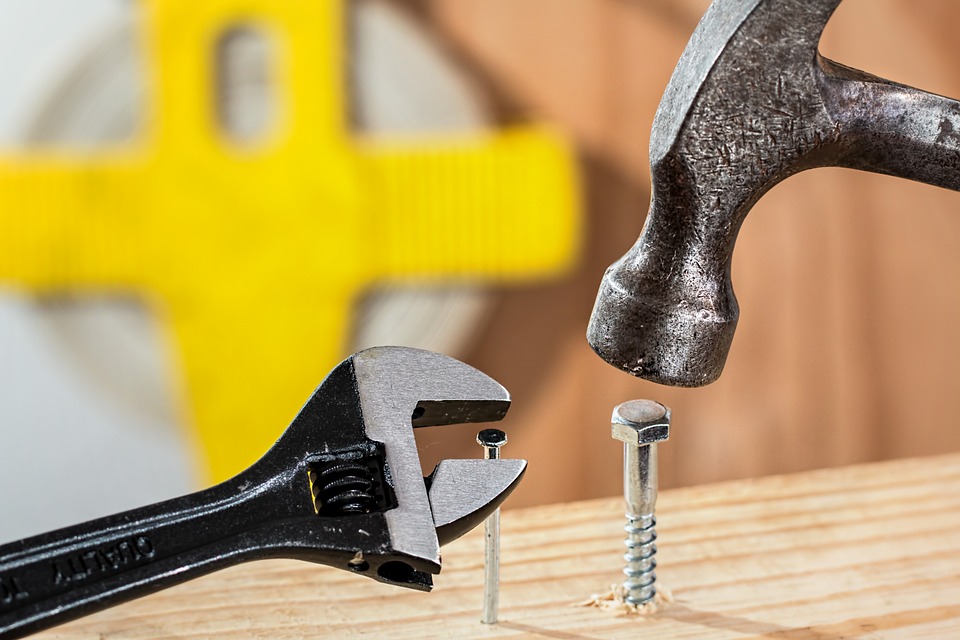A handyman can fix just about anything. From fixing the leaky toilet and bathroom pipes to remodeling kitchen cabinets. Since they work in their customer’s homes, having handyman insurance to protect their business is advisable.
Every type of business must have insurance coverage, and handyman businesses are no exception. In fact, as a handyman, you might actually need insurance more than other types of businesses. You spend most of your time in businesses or homes, interact more with the public, and any mistake you make can cause significant damage to the customer, or potentially yourself.
What Types of Insurance Does a Handyman Need?
While every business is unique, specific types of insurance policies are necessary to protect professionals in the handyman industry. Here are some of the types of insurance policies you might want to consider.
Handyman Liability Insurance
Being a reputable handyman means you’ll always be at work. Almost every house in the US needs minor repairs from time to time. If minor fixes are neglected, they can turn into major problems.
As a handyman, you’re also in constant contact with the public, which increases your risk of something going wrong. Despite being careful, mistakes can still happen. This is why you need handyman liability insurance to help mitigate your risks.
What’s Covered by Handyman Liability Insurance
The most important insurance policy you can invest in is liability insurance. It covers a lot and will respond if your business is sued for something you or your employee are found liable for.
Typically, a general policy pays the following:
- For the time spent on the case
- For attorney expenses, court cost and other defense-related fees
- For any fees ordered by the court
Who is Covered?
The best thing about handyman liability insurance is that it covers almost everyone working in your business, including you, partners, and your employees. If you’ve incorporated your business, your directors will also be covered if they are faced with any work-related lawsuits.
Contents Coverage for Handymen
If you’re like most handymen, you own expensive tools and equipment. What will happen to your business if those tools and equipment get lost?
The best way to protect your tools and equipment is to buy content coverage policy. Stolen tools and equipment can harm your business, not just in replacing them, but also for the jobs you might miss during that time you need to replace these items.
With contents coverage, you’ll be compensated for the tools replacement costs regardless of whether the loss is due to damage or theft. Depending on your business size and the types of jobs you take, you can get contents coverage at a cost-effective price.
Workers’ Compensation
If you have employees in your handyman business, it is essential to have workers’ compensation insurance. It protects your employees from any job-related injuries and also protects you from any legal fees resulting from employee lawsuits. Workers’ compensation is mandatory in many states.
Commercial Auto
A truck is among the most valuable assets for a handyman business. Commercial auto insurance covers you in case of injuries, repair bills, or other losses in the event of an accident on the job.
Keep in mind that your personal auto insurance policy does not cover your work vehicle. If your truck is involved in an accident while on the road for commercial purposes, a personal auto insurance policy might not cover it.
Inland Marine
As a handyman, you’ll be moving with your tools from one place to another. What happens to your tools and equipment if they are stolen, vandalized, or destroyed while on transit?
You need marine inland insurance to compliment your commercial auto policy. Commercial auto protects your truck, while inland marine takes care of your valuable materials, tools, and supplies stored in the truck.
Tips On Finding the Best Coverage for Your Handyman Business
Now that you’ve read about the most critical coverages for your handyman business, it is crucial to know where and how to find the right policies.
Before you buy a policy, take some time to study your business. These details will help make your buying process easier and faster. Consider:
Job Types
Do you specialize in a particular area, for instance, power washing or you are a jack of all trade?
Equipment
Do you own expensive tools?
Annual revenue
Do you have an estimate of your yearly business earnings?
Subcontractors
Do you give jobs to subcontractors?
You’ll need to get policies tailored for your specific needs, as no handyman business is exactly like the other.
For more great handyman tips, check out the other blogs on Check This House.



Comments are closed.